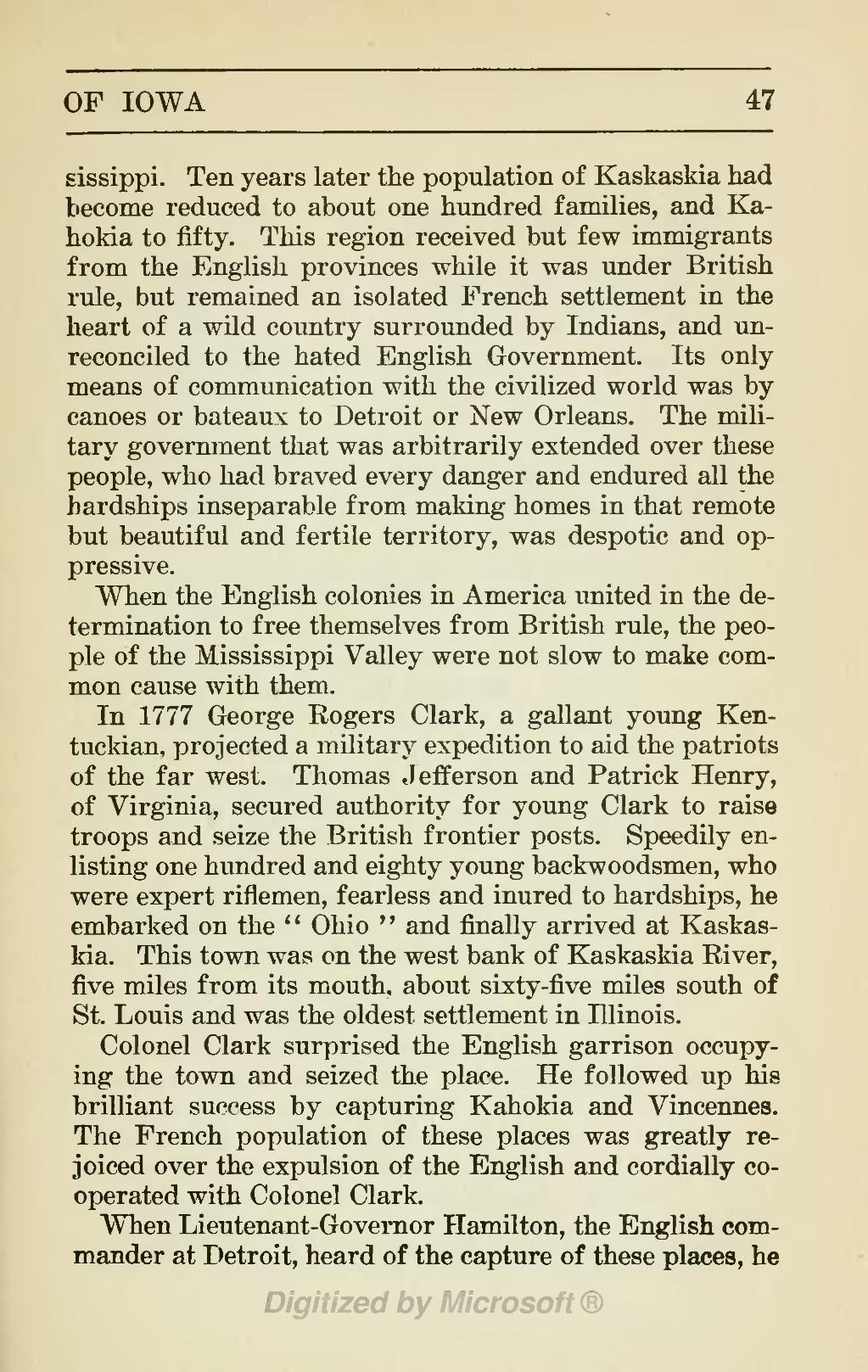| OF IOWA | 47 |
sissippi. Ten years later the population of Kaskaskia had become reduced to about one hundred families, and Kahokia to fifty. This region received but few immigrants from the English provinces while it was under British rule, but remained an isolated French settlement in the heart of a wild country surrounded by Indians, and unreconciled to the hated English Government. Its only means of communication with the civilized world was by canoes or bateaux to Detroit or New Orleans. The military government that was arbitrarily extended over these people, who had braved every danger and endured all the hardships inseparable from making homes in that remote but beautiful and fertile territory, was despotic and oppressive.
When the English colonies in America united in the determination to free themselves from British rule, the people of the Mississippi Valley were not slow to make common cause with them.
In 1777 George Rogers Clark, a gallant young Kentuckian, projected a military expedition to aid the patriots of the far west. Thomas Jefferson and Patrick Henry, of Virginia, secured authority for young Clark to raise troops and seize the British frontier posts. Speedily enlisting one hundred and eighty young backwoodsmen, who were expert riflemen, fearless and injured to hardships, he embarked on the “Ohio” and finally arrived at Kaskakia. This town was on the west bank of Kaskaskia River, five miles from its mouth, about sixty-five miles south of St. Louis and was the oldest settlement in Illinois.
Colonel Clark surprised the English garrison occupying the town and seized the place. He followed up his brilliant success by capturing Kahokia and Vincennes. The French population of these places was greatly rejoiced over the expulsion of the English and cordially cooperated with Colonel Clark.
When Lieutenant-Governor Hamilton, the English commander at Detroit, heard of the capture of these places, he
